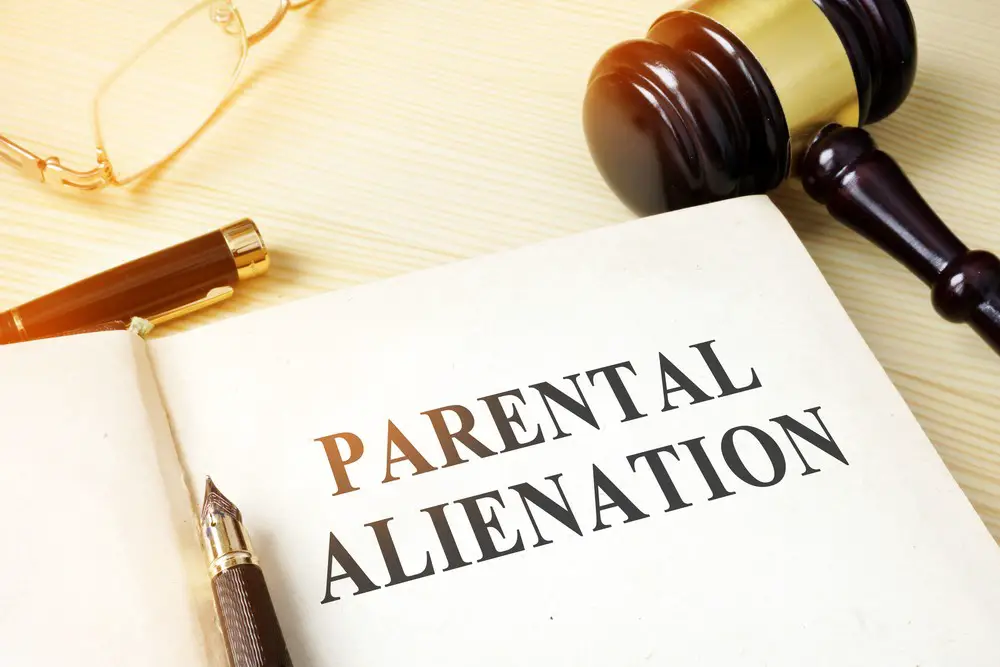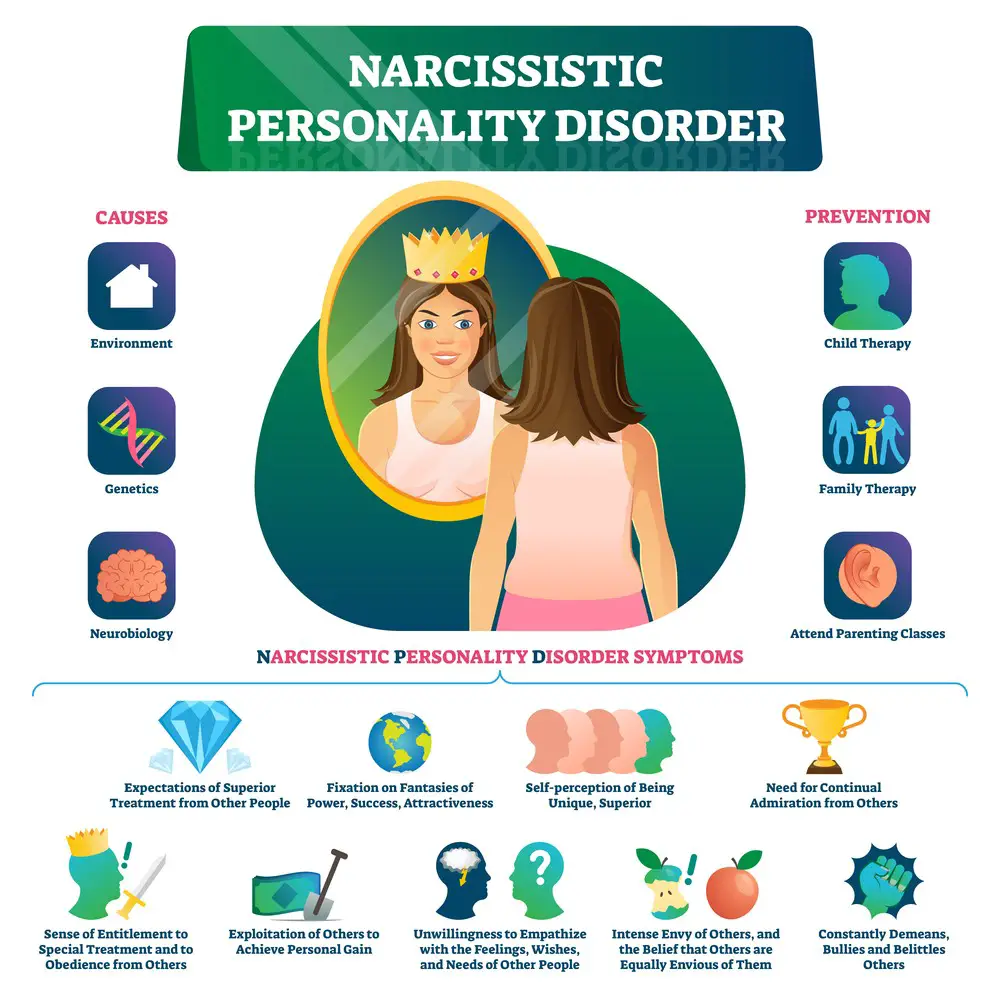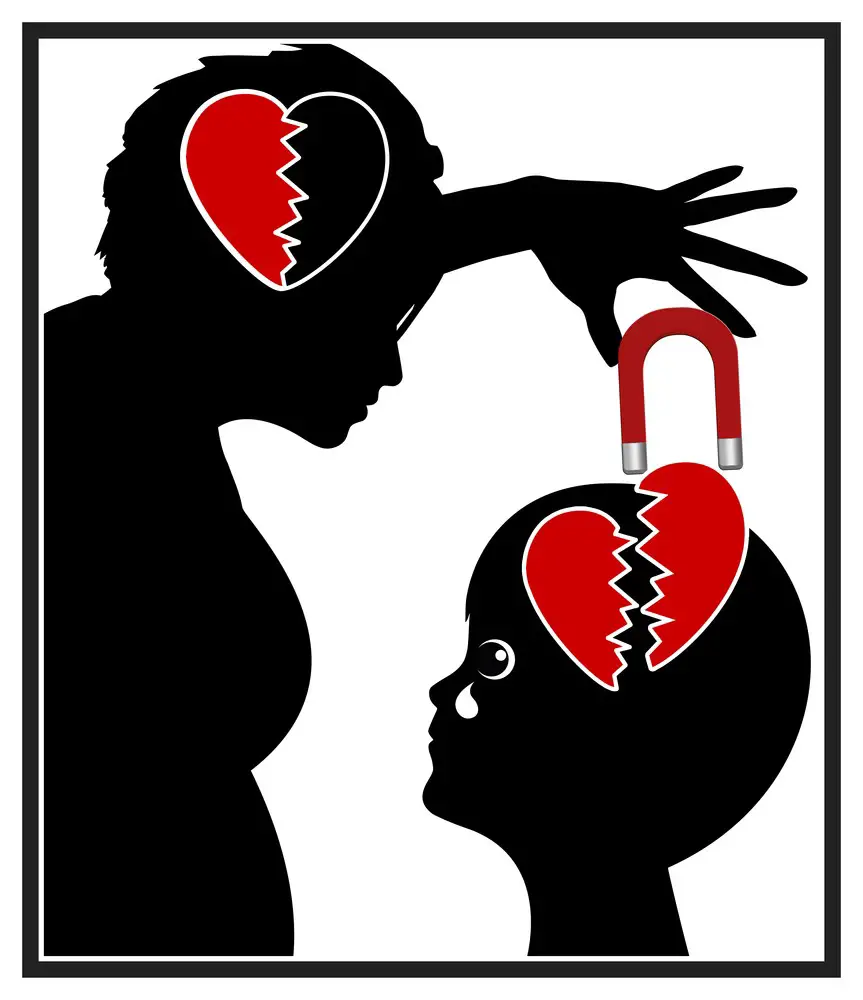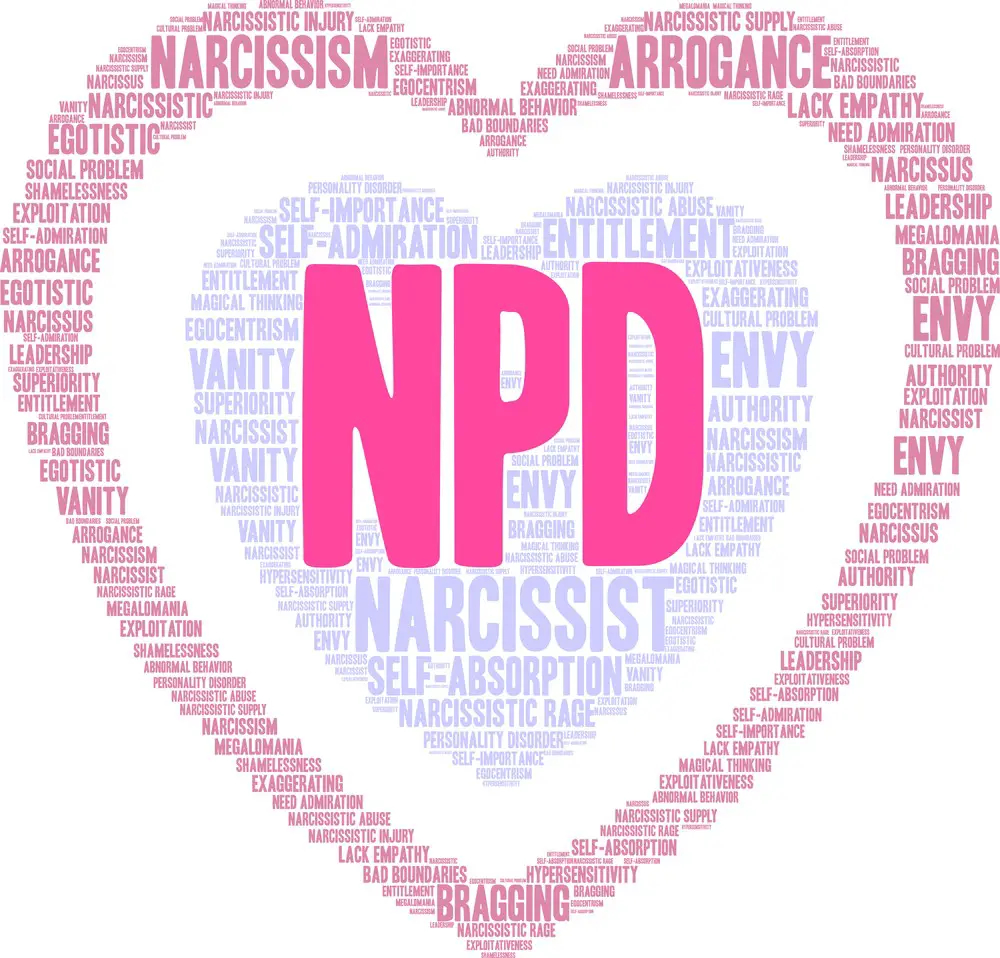Narcissistic parental alienation syndrome is a troubling phenomenon that occurs when a parent with narcissistic traits attempts to alienate their child from an otherwise loving parent deliberately. This form of psychological manipulation often takes place during a divorce or separation, where the alienating parent seeks to gain control over the child by vilifying the other parent. The involved individuals experience complex emotional turmoil and long-lasting effects on their relationships.
It is essential to understand the role of the narcissistic alienating parent and the tactics they employ to manipulate the child. Recognizing the impact of this behavior on the alienated child is crucial to helping them cope healthily. Both targeted parents and professionals should be aware of strategies, resources, and legal options available for coping with and recovering from the destructive form of parental alienation.
Key Takeaways
- Narcissistic parental alienation syndrome involves psychological manipulation of a child, leading to the alienation from an otherwise loving parent.
- Recognizing the tactics employed by the narcissistic alienating parent and the impact on family dynamics is crucial for support and recovery.
- Targeted parents should be aware of coping strategies, professional resources, and legal options available to address and mitigate the situation.
 Understanding Narcissistic Parental Alienation Syndrome
Understanding Narcissistic Parental Alienation Syndrome
Narcissistic Parental Alienation Syndrome (PAS) is a phenomenon that occurs when one parent, usually with narcissistic traits, manipulates their child into rejecting and alienating the other parent. It’s important to note that PAS is not currently recognized by the DSM-5 or the American Psychiatric Association, but psychologist Richard Gardner initially described it.
As the targeted parent, it’s your job to remain strong and supportive of your child during this difficult time. Here are a few tips to help you navigate the situation:
- Stay informed: Educate yourself about narcissistic traits and PAS so you can better comprehend what you and your child are facing. Understanding will help you make informed decisions when dealing with the alienating parent.
- Be consistent: Demonstrate a consistent and caring presence in your child’s life. Attend their extracurricular activities, maintain open communication, and provide a stable environment for them.
- Avoid engaging: Try not to engage in arguments or confrontations with the narcissistic parent. It could aggravate the situation and hurt your child.
- Professional help: If possible, seek professional help from a mental health expert who has experience in dealing with narcissistic behavior and PAS. They can offer guidance on how to address this complex issue.
Remember, your ultimate goal is to protect and support your child through this challenging experience. By remaining empathetic, informed, and proactive, you can make a positive difference in their life.
 Role of the Narcissistic Alienating Parent
Role of the Narcissistic Alienating Parent
When dealing with a narcissistic, alienating parent, it’s essential to understand their characteristics and how they impact their children. These parents often possess a strong sense of entitlement, display a lack of empathy, and are constantly seeking validation and control. It’s essential to know their tactics to support the child better and maintain a healthy relationship.
Narcissistic parents tend to project their insecurities and shortcomings onto their children, manifesting anger, criticism, and the constant need for perfection. They often use their children as pawns to exert control and manipulate the situation in their favor. This behavior can make the child feel as if they constantly need to walk on eggshells, fearing the wrath of the narcissistic parent.
Additionally, a narcissistic, alienating parent will be highly critical of the other parent, often demonizing them and causing the child to question their love and loyalty. This can create a divide between the child and the targeted parent, further fueling the narcissist’s sense of control and superiority. The more the alienating parent can isolate the child from the other parent; the easier it is for them to maintain their grip on the situation.
Here are a few strategies to help navigate this challenging situation:
- Stay calm and collected: Avoid reacting emotionally to the narcissistic parent’s behavior and focus on maintaining a healthy environment for your child.
- Maintain boundaries: Establish clear boundaries with the narcissistic parent and reinforce them as needed, protecting your time and emotional well-being.
- Keep communication open: Ensure your child knows they can speak openly about their feelings, fears, and concerns with you.
- Seek professional support: A therapist, counselor, or support group can provide valuable advice and resources in dealing with narcissistic parental alienation.
In conclusion, knowing the role of a narcissistic alienating parent and the tactics they employ can better help you safeguard your relationship with your child. By being empathetic and patient and maintaining open communication, you can create a supportive and loving environment where your child feels safe and supported. Remember, you’re not alone in dealing with this challenging situation, and your strength and resilience will make a difference.
 Impact on the Alienated Child
Impact on the Alienated Child
Experiencing narcissistic parental alienation can take a massive toll on a child’s emotional and mental well-being. The constant manipulation and coercion from a narcissistic parent can leave the alienated child with a mix of emotions like guilt, shame, and distress.
As an alienated child, you may undergo intense feelings of guilt or shame, as the narcissistic parent may blame you for the breakdown of their relationship with the other parent. This emotional burden can manifest in various mental health issues, such as depression and anxiety.
Bearing the brunt of narcissistic parental alienation can negatively impact your attachment styles, too. Forming healthy relationships in your future may become challenging as you might hesitate to trust others and struggle to form secure bonds.
Your self-esteem is another area that suffers in this situation. The ongoing manipulation and interference from the narcissistic parent can make you question your self-worth and abilities, further intensifying feelings of low self-esteem.
- Key Takeaway: Narcissistic parental alienation can negatively impact an alienated child’s mental health, attachment styles, and self-esteem, causing them to grapple with guilt, shame, depression, and anxiety.

Strategies Used by the Alienator
Narcissistic parental alienation is a challenging issue, and it’s essential to understand some common tactics used by the alienator. Recognizing these strategies will help you deal with them effectively.
One approach that the alienator might use is exaggerating situations and lying about events. They may distort the truth to paint themselves as victims while making you appear like the perpetrator. Be cautious about false narratives – keep records and communicate with your children to maintain transparency.
Another technique employed by alienators is brainwashing and indoctrination. They try to manipulate the child’s thoughts and feelings against you by spreading fear, doubt, and negativity. You must remain patient and consistent in your efforts to counteract this misinformation.
Emotional manipulation is also common in these situations. The alienating parent might use guilt, sadness, or anger to control the child and isolate them from him. Keep an open dialogue with your child to address their concerns and provide emotional support while maintaining interpersonal boundaries.
To better handle these alienators, remember the following:
- Stay calm and be patient with your child
- Maintain open lines of communication
- Counteract false narratives and misinformation
- Respect and enforce interpersonal boundaries
Armed with this knowledge, you’ll be better prepared to navigate narcissistic parental alienation and ensure the best environment for your child.
 The Targeted Parent
The Targeted Parent
As the targeted parent in a narcissistic parental alienation situation, you may experience an overwhelming mixture of emotions. You’ll likely face feelings of hate, blame, abuse, love, grief, and power struggles. Navigating this challenging terrain can be daunting, but with the right approach, you can maintain a strong bond with your child.
It’s essential to remain empathetic toward your child, even when he or she seems to be pulling away from you. Keep in mind that your child may be manipulated by the alienating parent, which can lead to confusion and emotional turmoil. Always show your child unconditional love, offering support and kindness, regardless of their behavior.
Despite the challenges you face as the targeted parent, it’s essential to maintain your composure and confidence. It’s understandable to feel grief and a sense of loss but resist the urge to display these emotions to your child. Remember, children are perceptive to their parent’s emotions and might feed off your worry or insecurity.
Consider implementing the following strategies to counteract the effects of narcissistic parental alienation:
- Stay engaged in your child’s life without intruding or pressuring them for more contact
- Remain supportive and patient, even when your child expresses unfounded blame or hatred towards you
- Celebrate your child’s accomplishments, demonstrating that you are proud and genuinely invested in their well-being
In dealing with the power dynamics at play with the other parent, it’s essential to stand up for your rights without provoking further conflict. Mediation and legal support can help protect your rights and ensure you are not mistreated.
Remember, as the targeted parent, your main objective is establishing and maintaining a loving connection with your child. By showcasing empathy, resilience, and unconditional love, you’ll create a lasting bond that can withstand narcissistic parental alienation challenges.
 Family Dynamics and Effects
Family Dynamics and Effects
When dealing with narcissistic parental alienation syndrome, it’s essential to understand the family dynamics and the effects it has on everyone involved. In a high-conflict divorce, the narcissistic parent may use tactics such as grandiosity, favoritism, and prejudice to manipulate their child and alienate them from the other parent.
You may notice changes in both the ex-spouse and the siblings. The targeted parent often feels isolated and helpless, while the siblings may also be affected by the toxic atmosphere. They may pick up on the negative behavior or suffer from the same alienation tactics, so it’s crucial to support them.
It’s important to remember that narcissistic parents thrive on the power they have over their family. They do this by:
- Manipulating their child to reject the other parent
- Encouraging hostility and prejudice between siblings and the target parent
- Using positive reinforcement (such as gifts and excessive praise) to maintain their favoritism and control over their child
Awareness of these harmful dynamics can help you identify the signs early on and take proper action. Here are some tips to handle such situations:
- Establish healthy boundaries: Set limits with the narcissistic parent and have open conversations with your child about the importance of boundaries in relationships.
- Keep communication open: Encourage your child to express their feelings and concerns openly while promoting a healthy dialogue between you and your ex-spouse.
- Seek professional help: Consider therapy for you, your child, and your ex-spouse to navigate through the complex emotions and situations in your family.
Remember, it’s crucial to recognize the signs of narcissistic parental alienation, understand its effects on your family, and take the necessary steps to protect and support your loved ones.
 Parental Alienation vs Abuse
Parental Alienation vs Abuse
It’s essential to understand the difference between parental alienation and child abuse. Parental alienation involves one parent psychologically manipulating a child to turn against the other parent, usually in the context of a divorce or custody battle. This behavior can harm a child’s emotional and psychological well-being.
In contrast, child abuse typically refers to physical, emotional, or sexual harm inflicted on a child by a parent or caregiver. Parental alienation is a form of emotional abuse. Still, it’s crucial to differentiate it from other types of abuse that may not involve manipulation targeted explicitly at the relationship between the child and the other parent.
American Psychological Association’s stance: The APA does not officially recognize “parental alienation syndrome” as a formal diagnosis. However, many psychologists still address the issue of parental alienation in their practices, as it can have severe consequences for the mental health of children and families.
As you navigate this challenging situation, keep these strategies in mind:
- Consult a psychologist: A licensed mental health professional can help you identify signs of parental alienation and provide guidance on the best course of action.
- Focus on the child’s well-being: Always prioritize the emotional and psychological health of your child, regardless of the issues between you and the other parent.
- Document everything: If you suspect parental alienation, document instances of manipulative behavior and keep records of conversations and correspondence with the other parent.
- Remain neutral: Avoid speaking negatively about the other parent in front of your child, as this can exacerbate the situation and potentially cause further harm.
In the end, it’s crucial to differentiate between parental alienation and other forms of abuse, as they require different approaches and interventions. Keep communication open with your child and work closely with mental health professionals to support their well-being throughout the process.
 Emotional Manipulation and Control in Narcissistic Parental Alienation
Emotional Manipulation and Control in Narcissistic Parental Alienation
In cases of narcissistic parental alienation, emotional manipulation, and control are often at the core of the alienating parent’s behavior. As an involved party, it’s essential to recognize and understand these tactics to navigate the situation effectively.
One common manipulation tactic is gaslighting, where the narcissistic parent plants seeds of doubt in the child’s mind about the other parent. They might alter the truth, deny past events, or misrepresent situations to position themselves as the “good parent.” To maintain control, narcissistic parents may also use reward/punishment dynamics. When the child follows their narrative and rejects the other parent, they receive praise and approval. However, if the child shows empathy or affection towards the targeted parent, they may face ridicule or withdrawal of attention.
Emotional dysregulation is another key aspect of narcissistic parental alienation. Narcissistic parents may have sudden outbursts of rage or intense frustration. This unpredictable behavior keeps the child on edge and alienates them from the targeted parent. Additionally, the narcissistic parent often exhibits a lack of empathy, unable to recognize or validate the child’s feelings when discussing their relationship with the other parent.
To counter this manipulation and control:
- Keep lines of communication open with your child
- Stay consistent in your emotional reactions, showing empathy and support
- Document instances of manipulation and control for potential legal proceedings
- Consider professional help, such as therapy or counseling, for both you and your child
In the end, understanding and combating emotional manipulation and control in narcissistic parental alienation is crucial for protecting your relationship with your child. Stay strong and remember that your love and support are essential for their well-being.
 Coping and Recovery Strategies
Coping and Recovery Strategies
Facing narcissistic parental alienation can be a challenging experience, and coping with it can be particularly tough. However, by incorporating specific strategies into your daily life, you can support your recovery and regain trust in your child. Here are some key points to remember:
- Stay strong and confident: It’s vital to display an unshakable demeanor. Your child will mirror your energy, and remaining calm and confident can help alleviate their fears.
- Maintain open communication: Keep lines of communication open with your child, even if it seems complicated. Share your thoughts, emotions, and experiences with them, and establish a safe environment for them to do the same.
- Seek professional help: Consulting a therapist or counselor who specializes in narcissistic parental alienation syndrome can provide valuable guidance and support.
- Build a support network: Reach out to friends, family, and support groups to discuss your experiences and gain additional insight.
- Focus on resilience: Foster emotional resilience in yourself and your child. By developing emotional strength, you will be better prepared to handle challenges and rebound from setbacks.
- Stay informed and educate yourself: Knowledge is power – learn about narcissistic parental alienation syndrome and its effects. Understanding the condition will help you make informed decisions while developing coping strategies.
When dealing with narcissistic parental alienation, remember that it’s essential to take care of yourself as well. Maintain a healthy lifestyle, exercise regularly, and engage in activities that bring you joy. Doing so will reinforce your strength and resilience, essential for coping and recovery.
By incorporating these strategies into your life, you can stand up to narcissistic parental alienation and create a healthier, more supportive environment for both you and your child.
Professional Help and Resources
Coping with narcissistic parental alienation syndrome is a challenging experience. There are various professional help and resources available to guide you through this challenging period.
A therapist or psychologist specializing in family counseling can offer invaluable support. They can provide coping strategies, help in understanding the dynamics of the situation, and work with you to develop a plan to improve your relationship with your child. Therapy Help offers resources and assistance in finding the right professional to help you navigate this complex issue.
Joining a support group can also be highly beneficial. These groups provide an opportunity to connect with others experiencing similar challenges, creating a safe space to share stories and explore possible solutions. The National Association of Parental Alienation Specialists offers information and resources, including connections to support groups.
Here are some more valuable resources to consider when seeking professional help:
- Family law attorneys: Legal experts specializing in family law can help you navigate the complexities of your situation. They also can provide guidance on your options for addressing parental alienation.
- Local community resources: Your local community may have resources, such as parenting classes, workshops, or support groups focused on parental alienation and family relationships.
It’s essential to prioritize self-care during this challenging time. Remember to take care of your physical, emotional, and mental well-being. Develop positive habits, such as regular exercise, eating well, and getting enough sleep. Don’t forget to contact friends or family who can provide emotional support and encouragement.
Dealing with narcissistic parental alienation syndrome might feel overwhelming, but remember that help and resources are at your fingertips. By seeking the support of professionals, connecting with others in similar situations, and practicing self-care, you can move forward in a positive direction.

Legal Aspects and Custody
When dealing with narcissistic parental alienation, custody battles can become highly complex and emotionally draining. Understanding the legal implications of such behaviors is vital in protecting your child’s best interests and securing a favorable custody arrangement. In these circumstances, allegations of parental alienation are often used to undermine the other parent’s case.
Courts take a severe approach to evaluating such accusations, as they recognize the potential harm inflicted on the child and the long-term impact it may have on their relationship with the targeted parent. The legal system aims to prioritize the child’s welfare; hence, efforts to manipulate or influence a child’s feelings towards a parent negatively will be considered carefully.
One strategy to strengthen your case is to gather and present evidence of alienating behaviors or attempts at custody interference. Examples can include manipulating your child to refuse contact, repeatedly denigrating you in front of them, or making false allegations as a method to gain leverage in court. Whenever you experience these actions, document, collect witness statements, and obtain corroborative evidence such as written communications.
A skilled family law attorney who has expertise in dealing with cases involving parental alienation can make a substantial difference. They will help you navigate the legal complexities, remain objective, and build a strong case on your behalf. Through careful planning and legal representation, you can protect your child’s welfare while fighting to establish a custody arrangement that serves their best interests.
Throughout the process, it is crucial to maintain a positive and supportive presence in your child’s life. Establish open and honest communication, provide emotional support, and remain proactive in addressing any issues that might arise due to the alienating behaviors. In doing so, you demonstrate your commitment to their well-being, which will not go unnoticed by the courts.
Remember that, ultimately, the primary goal is to ensure your child’s mental, emotional, and physical health is protected during this challenging time. By remaining focused and engaging in proper legal and emotional support, you can overcome the trying experience of dealing with narcissistic parental alienation in custody battles.
Signs of Parental Alienation
Parental alienation is a serious issue that occurs when a child becomes estranged from one parent due to psychological manipulation by the other parent. It’s a murky territory that can cause long-term damage to the child-parent relationship. Here’s a look at some of the signs that may indicate parental alienation is taking place:
• Denigration: The hallmark of parental alienation is a campaign of denigration against the targeted parent. The child may exhibit an irrational hatred or fear toward the alienated parent with no justifiable cause.
• Frivolous Rationalization: When a child provides weak, absurd, or frivolous reasons for their dislike or hatred towards the alienated parent, it’s a red flag. They may be unable to specify why they feel the way they do.
• Lack of Ambivalence: It’s natural for people to have mixed feelings towards their parents. In cases of parental alienation, the child may exhibit a lack of ambivalence, showing only negative feelings towards the alienated parent and positive feelings toward the alienated parent.
• Independent Thinker Phenomenon: The child may insist that the negative opinion of the alienated parent is solely their idea, even when it’s clear that they are parroting the alienating parent’s views.
• Reflexive Support: The child may show reflexive support towards the alienating parent in any disagreement between the parents, regardless of the facts.
• Absence of Guilt: There is often an absence of guilt in the child’s attitude towards the alienated parent, showing no remorse for their behavior.
• Use of Borrowed Scenarios: The child’s accounts of the alienated parent’s behavior may be overly rehearsed or mimic the alienating parent’s words, indicating that these scenarios have been coached or borrowed.
• Spread of Animosity: The child’s animosity may spread to the alienated parent’s extended family or friends despite previous warm relationships.
Dealing with parental alienation requires a nuanced approach. It might involve:
- Legal Assistance: Seeking legal counsel to understand your rights and the appropriate action to ensure the child’s welfare.
- Therapeutic Intervention: Engaging in family therapy to work through the issues in a safe and structured environment.
- Documenting Evidence: Keeping a detailed record of alienation-related incidents can be useful in legal proceedings.
- Educating Yourself: Understanding parental alienation, its signs, and its impacts can help you navigate this challenging situation.
Suppose you suspect parental alienation is happening in your family. In that case, it’s crucial to take action to address the issue promptly and seek professional guidance to ensure the well-being and mental health of all involved.
Frequently Asked Questions
What are the signs of narcissistic parental alienation?
If you notice these signs in your child, they may be experiencing narcissistic parental alienation:
- Unfairly criticizing the alienated parent without proof or examples
- Displaying only negative feelings towards the alienated parent
- Claiming to have formed the negative opinion of the alienated parent independently
How can a narcissistic parent influence their child against the other parent?
A narcissistic parent might use psychological manipulation to turn their child against the other parent. This manipulation can be subtle or overt, yet the ultimate goal is to undermine the child’s relationship with the targeted parent and foster a sense of loyalty to the alienating parent.
What are the effects of narcissistic parental alienation on a child?
The child may experience:
- Confusion about their feelings towards both parents
- Anxiety and fear of the targeted parent
- Guilt and shame for siding with one parent over the other
- Difficulty in forming healthy relationships and trust issues in the future
Is there legal recourse for those affected by narcissistic parental alienation?
Yes, depending on the jurisdiction, you may have legal recourse. A family law attorney can inform you about the laws in your area and help you take appropriate action. Documenting incidents of alienation and gathering evidence can significantly support your case.
How can one cope with narcissistic parental alienation?
To cope with narcissistic parental alienation, you can:
- Maintain a strong and loving connection with your child
- Demonstrate strength and confidence to reassure your child
- Avoid badmouthing the alienating parent in front of the child
- Seek professional help, such as therapy or support groups, to deal with the emotional impact
How to help a child recover from narcissistic parental alienation?
Helping your child recover involves:
- Open communication and active listening
- Offering reassurance of your unconditional love and support
- Encouraging critical thinking and independent decision-making
- Seeking therapy or counseling for your child to address the emotional impact
Navigating the Turbulent Waters of Narcissistic Parental Alienation: A Personal Journey
There’s an old saying that life throws curveballs when least expected. Mine came hurling towards me in the guise of narcissistic parental alienation, a storm that swept away the cherished bond I shared with my children. As someone dedicated to personal growth and mental wellness, I never imagined facing such a heart-wrenching challenge. Yet, as I wade through the mire of court battles and the cold shoulder from my ex-spouse, I’ve discovered a reservoir of resilience within, fortified by my daily strides in therapy and the rhythm of my feet hitting the pavement during long, reflective walks.
• Encountering the Wall: The journey to reconnect with my children hit a wall when my ex ceased cooperating with reunification therapy, a process we began to mend the broken threads of parent-child relationships. The moment our therapist managed to steer the kids toward ending the alienation, the cooperation ended abruptly.
• A Pillar of Support: Combatting the waves of anxiety, I found solace in Lexapro, a companion in my mental health toolkit. As a therapy veteran, I recently embraced the support offered by BetterHelp, further fortifying my mental fortress.
• The Narcissistic Tornado: My ex’s narcissism isn’t a whisper but a howling wind. Her pursuits of illicit liaisons with community leaders, followed by relentless smear campaigns, paint a clear picture of her selfish demeanor. As the years rolled by post-divorce, her narcissism seemed to intensify, the alienation growing with each passing day.
• A Battle of Wills: Despite court orders advocating shared custody, my ex chose the path of defiance. The bittersweet memories of a close-knit relationship with my children, housed in two harmonious households, now seem like a distant dream. The ongoing court battle reflects the refusal to adhere to custody agreements and a clear disdain for co-parenting.
• Seeking Solace in Expression: Amid the chaos, I discovered a cathartic release in penning down my experiences. Through articles on mental health and narcissism, I aspire to extend a helping hand to those grappling with similar predicaments. My legal site serves as a beacon for individuals dealing with defiant spouses, shedding light on regaining control and seeking justice.
• The Silver Lining: The road has been rocky, but every article I write, every interaction on my legal site, and every step I take towards self-improvement reminds me that overcoming mental health hurdles is a journey, not a destination. Through the fog of narcissistic parental alienation, I see a glimmer of hope, a promise that with persistence, the storm shall pass, and tranquil days with my children will grace my life once more.
Life is a relentless teacher, and through the quagmire of narcissistic parental alienation, I’ve not only unearthed a deeper understanding of mental health but a mission to assist others on this convoluted path. Our stories, tangled with pain, resilience, and hope, echo the testament of the human spirit to navigate through storms and emerge with wisdom to share, one word at a time.
- The Burnout Epidemic: Why We’re All Feeling Overwhelmed and How to Cope - February 9, 2024
- How to Live a Peaceful Life - February 9, 2024
- Useful Information You Should Know About Health Screenings - February 8, 2024
This site contains affiliate links to products. We will receive a commission for purchases made through these links.


 Understanding Narcissistic Parental Alienation Syndrome
Understanding Narcissistic Parental Alienation Syndrome Role of the Narcissistic Alienating Parent
Role of the Narcissistic Alienating Parent Impact on the Alienated Child
Impact on the Alienated Child The Targeted Parent
The Targeted Parent Family Dynamics and Effects
Family Dynamics and Effects Parental Alienation vs Abuse
Parental Alienation vs Abuse Emotional Manipulation and Control in Narcissistic Parental Alienation
Emotional Manipulation and Control in Narcissistic Parental Alienation Coping and Recovery Strategies
Coping and Recovery Strategies

